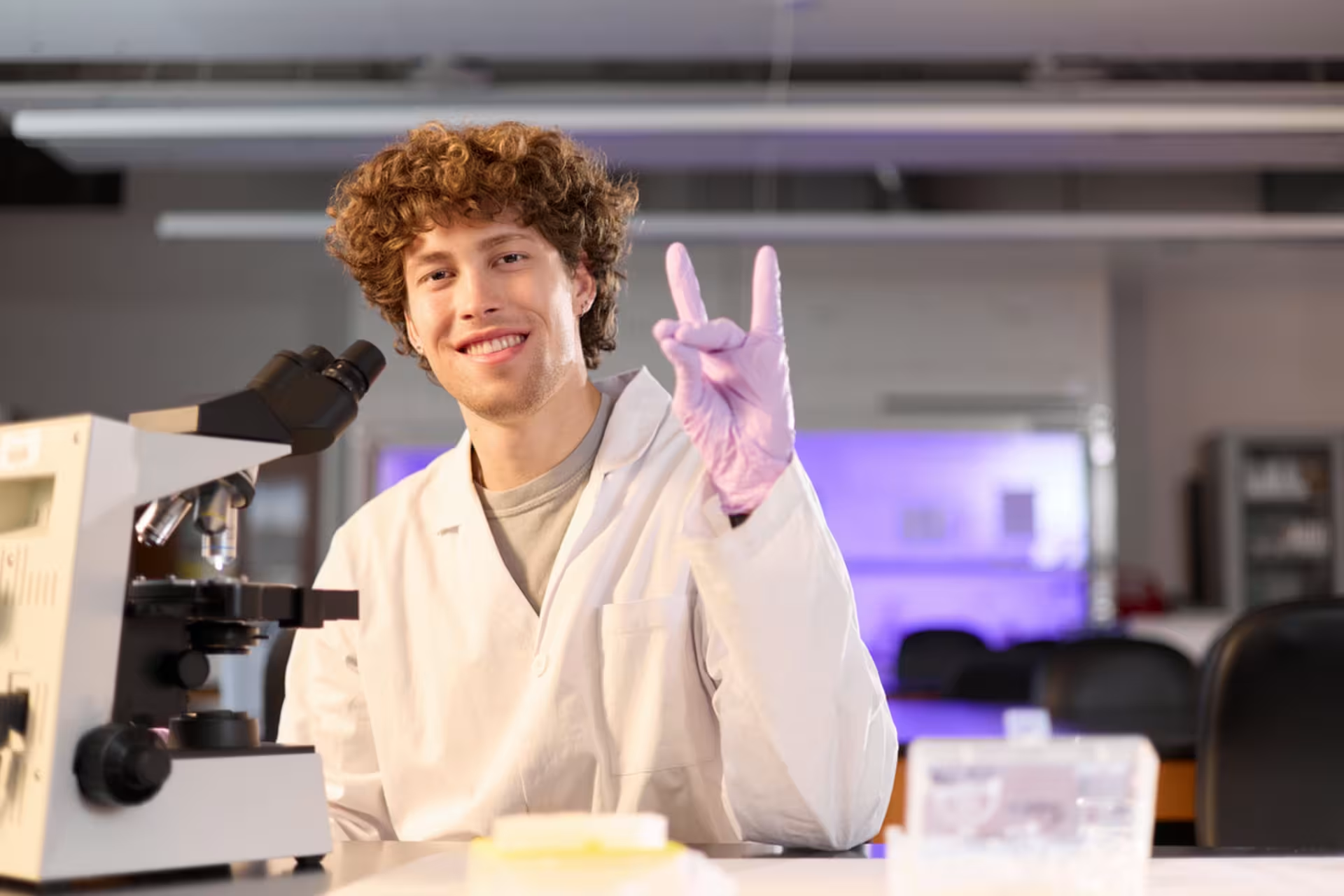With a biology degree with an emphasis in pre-medicine, you may be prepared to pursue entry into medical school. However, there are many other career choices you might consider as an alternative to pursuing medical school.
First, you should become more familiar with the course of study. What is a pre-med emphasis and what are the best pre-med majors? Let’s take a closer look.
Is Pre-Med a Major?
Pre-med isn’t actually a specific major, like chemistry or health sciences. Instead, it’s an emphasis or specialization that is “attached” to a major, like biology. For instance, you might apply to a Bachelor of Science in Biology with an Emphasis in Pre-Medicine degree program.
The pre-med emphasis means that during the degree program, you will take certain courses (math and science) intended to qualify and prepare you to pursue admission to medical school. While a pre-med emphasis is a common choice for those intending to pursue further education at medical school, med school isn’t the only option for graduates.
What Is Taught in a Pre-Med Program?
Regardless of what you plan to do with your degree, the curriculum offers you the opportunity to develop strong foundational knowledge in healthcare. Each pre-med emphasis program will vary somewhat from one school to the next.
However, some of the specific topics it may cover could include the following:
What Skills Are Taught in a Pre-Med Program?
A pre-med emphasis program generally teaches a combination of technical (hard) and soft skills. Hard skills are specific to a particular field or occupation, whereas soft skills are transferable across career fields.
Some examples of skills that may be taught in a pre-med emphasis include:
What Can You Do With a Pre-Med Degree Emphasis?
Jobs with a pre-med degree include careers working directly with patients and careers in which you would play more of a behind-the-scenes role. Here’s a quick look at some options for jobs as a graduate of a pre-med program.
Medical and Clinical Laboratory Technologists
Medical and clinical laboratory technologists work behind the scenes in healthcare. When a provider orders a diagnostic lab test, they will send samples to the lab (e.g., blood, urine or tissue samples). Technologists are responsible for conducting lab tests to evaluate the samples.
They analyze the samples by using lab equipment and record the results in the patient’s medical records. They may also discuss the results with the ordering provider.
Some technologists may specialize in a certain type of lab test. For example, a blood bank technologist specializes in classifying and preparing blood for transfusions, and a microbiology technologist specializes in identifying strains of bacteria and other microorganisms.
Life Scientist
To understand the job of a life scientist, you should first know that life sciences include biology, chemistry, botany, health science, food science, genetics and other disciplines. A life scientist is a type of scientist who works in one of these disciplines.
As you might expect, the job description of a life scientist can vary considerably depending on their chosen discipline. For instance, a food scientist might work on developing new flavor profiles through chemical analysis. A biologist might explore the decline of bee populations, and a chemist might develop new medications.
Biological Scientist
Biological scientists specialize in the study of living organisms, such as animals, plants and fungi. They might also explore how these organisms interact with their environment. Biological scientists include professionals like zoologists, wildlife biologists and forensic biologists.
Like life science, biological science is a highly diverse field. Some scientists might pursue research studies for the sake of adding to the body of knowledge in the field, while others might focus on applied research intended to solve problems.
Biological Technician
Biological technicians support the work of scientists. They may work with medical or biological scientists. They may be responsible for tasks such as:
Like other technicians, the job of a biological technician may be ideal for someone who is interested in a science career but doesn’t necessarily want to meet the requirements necessary to become a scientist.
Forensic Science Technician
If you’re interested in both medical science and law enforcement, you might consider pursuing a career as a forensic science technician. These technicians are responsible for collecting, identifying, classifying and analyzing various types of evidence related to crimes and investigations. For instance, they may test hair, bodily fluids, tissues or fibers, and they may perform tests on weapons.
Forensic science technicians do both lab and fieldwork. In the field, they collect and preserve evidence, record observations and take pictures of crime scenes. In the lab, they conduct tests on collected evidence and collaborate with other forensic science professionals. They may also be required to testify in court when the case goes to trial.
Which Type of Medical Field Job Is Right for You?
Medical science job opportunities can be a good choice for those interested in a STEM career. It’s a particularly ideal field for lifelong learners because technologies are continually being developed and improved. If you’re passionate about these types of medical field jobs, you may find it difficult to narrow down the possibilities.
It can be helpful to think about your personal characteristics and skills. For instance, are you great with people? Do you love technology? Do you have a knack for numbers? Regardless of your strengths, there are many jobs with a pre-med emphasis that you could begin preparing for in college.
Start Your Medical Science Journey at GCU
You can begin working toward a career in the medical science field by enrolling in a Bachelor of Science in Health Sciences degree or a Bachelor of Science in Biology with an Emphasis in Pre-Medicine program at Grand Canyon University. GCU also offers a number of other medical science programs, such as our medical lab and forensic science programs. To learn more about earning your medical sciences degree at GCU, complete the form on this page to get in touch with a university counselor.






